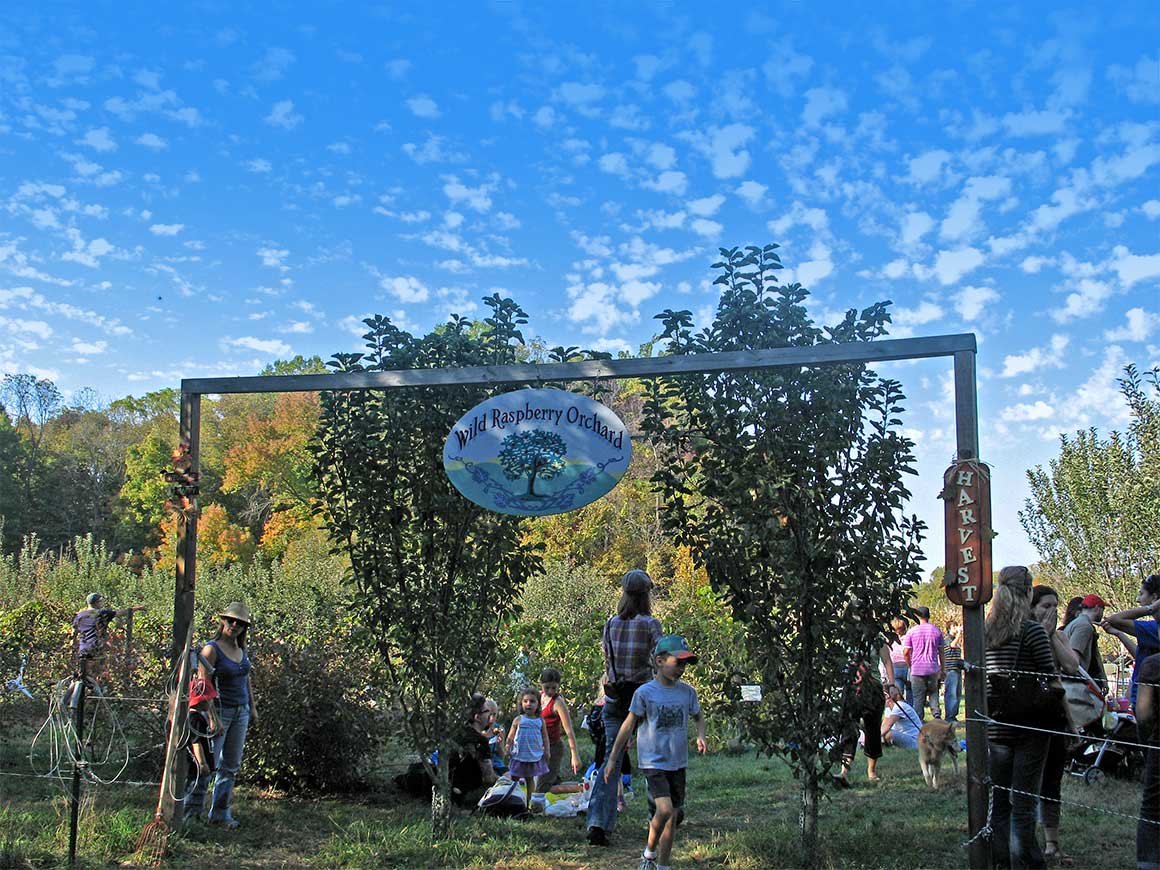
Wild Raspberry Apple Orchard
October 7, 2023
ORCHARD HOT NEWS
Before Harvest Fest
Join us for a pre-event orchard maintenance day. We always need volunteers to help get the orchard in shape during the growing season and right before the Harvest Fest. This usually takes place on Saturdays and can entail spraying (organic sprays), moving and raking wood chip, picking summer variety apples, grass cutting, etc. Of course, as always, all volunteers get free admission on Harvest Day!
If you are interested, please contact Rich to suggest a Saturday you would like to come so he can be there and have everything ready to make it a productive day. Volunteers are able to nominate (and vote) for recipients for the income generated at the Harvest Day.
At Harvest Fest
This day is successful thanks to volunteers who set-up, lead stations or perform. Volunteers are scheduled for a two-hour shift during the day. It is best to arrive one hour before the scheduled shift to receive a brief orientation. Free admission, pizza, pie, ice-cream and of course harvested apples just adds to the fun.
Natural Bees Are Back
Unfortunately, the bees in the hive did not survive the winter, not uncommon these days, but due to some mistakes. Fortunately, there are plenty of natural bees at the orchard pollinating the blossoms this spring.
Hours
12 noon – 7 pm (Central Time)
The Harvest Fest takes place on the beautiful, wooded Wild Raspberry Orchard in Union Pier, Michigan, approximately 1½ hours from Chicago. Harvest Fest is a full day of outdoor, family-friendly activities and live music to celebrate fall’s seasonal apple bounty.
Entrance Fee
You donate any amount, and the money collected after expenses will be donated to charity. Admission includes apples that you pick yourself. Participation in all activities is also included in the entrance fee.
Food for Sale
- Gourmet pizza cooked in a
wood-burning oven - Apple pie with hand or bike cranked ice cream
- Caramel Apples, Apple Butter, Apple Sauce, Apple Jams
Guests are welcome to bring food and drinks, blankets, sunscreen, and/or bug spray as the event is held outdoors rain or shine.
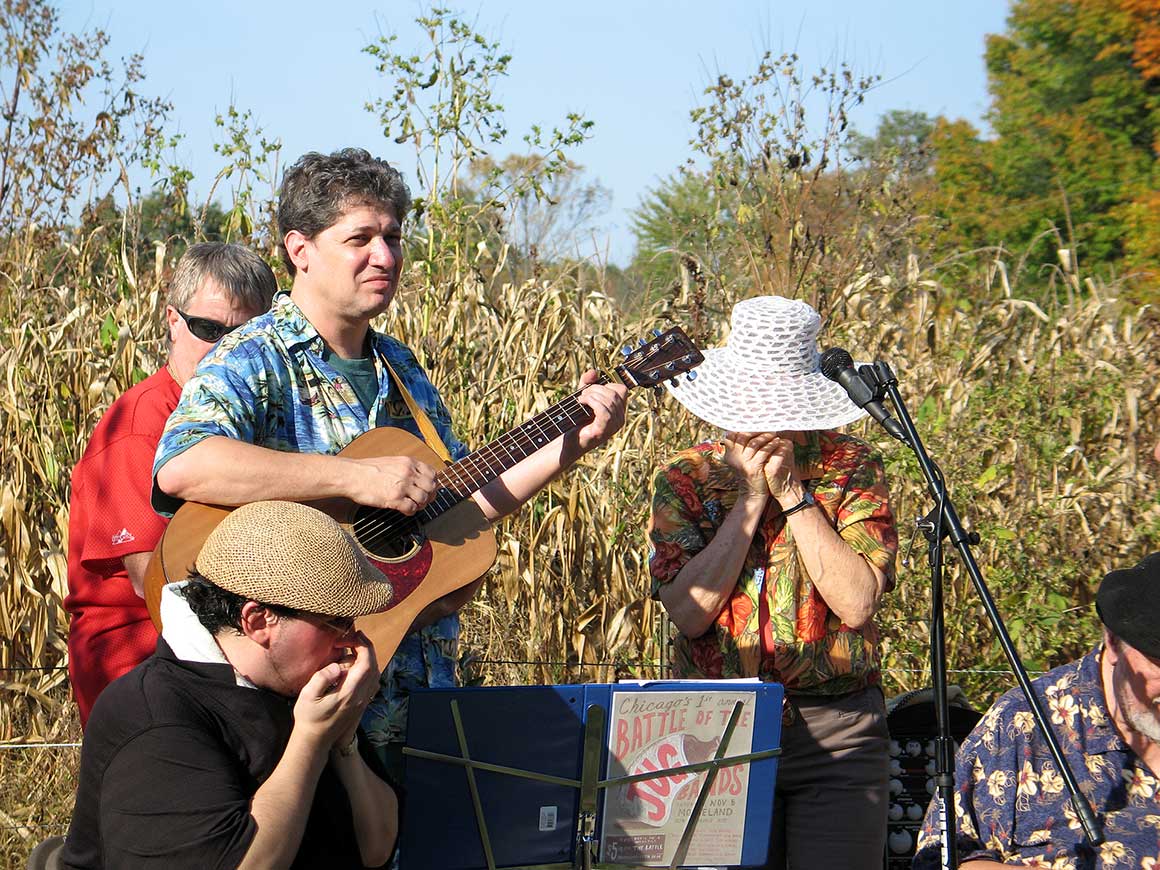
Special Attractions
The Harvest Fest or Harvest Day (only apple picking day) is designed to offer opportunities for all ages. At the Harvest Fest, activity stations throughout the orchard allow visitors to learn about organic apple production and engage in all steps of the processing – from harvesting, to washing, and even pressing your own apple cider through the mill. Enjoy a relaxed atmosphere with live music, hot pizza, and a slice of apple pie.
Activities Include
- Pick-your-own organic apples
- Pressing your apples on an antique style apple cider press
- The famous scrumptious apple pie of
Ruth Rutschman Holliday - Amazing tasting brick oven pizza made by gourmet bakers like Micah, Jesse or Elijah Rutschman
- Activities for kids
- Nature Hike through the woods by the creek feeding the Gallien River
- Orchard tours explaining cultivars and organic approaches
- Stage and Entertainment with scheduled musicians or performers
- Open mic: bring your own act!
Past Performance Videos
If you are interested in performing or leading activities for kids, contact Jeremy at jeremybabcock@gmail.com
Fire spinning magic performed after dusk at the campfire.
Jeremy Babcock, Shawn Schlag & Aerin Tedesco sing an original tune, “The Damage We Do.”
If you are interested in volunteering contact richrutsch@ameritech.net or jrutschman@gmail.com
Getting
Here
Driving Directions
16700 Lakeside Road, Union Pier, MI. It is between Union Pier Road and Kruger Road. From Chicago: Take I-94 E to the Toll Road I-90 E (or stay on I-94 for no tolls & more traffic). Take exit 21 in Indiana to I-94 E. Take I-94 exit 6 in Michigan (Union Pier). At the stop sign, turn left heading east on Union Pier Rd/Elm Valley Rd. At the first stop sign, make a right, heading south on Lakeside Rd. The orchard is on the right, parking is as directed on the left. PLEASE BE CAREFUL AS TRAFFIC IS ALLOWED TO GO 55 MPH, PARTICULARLY WITH CHILDREN.
Carpool
To arrange carpooling from Chicago or the train stations, post a request on the Wild Raspberry Apple Orchard page on Facebook.
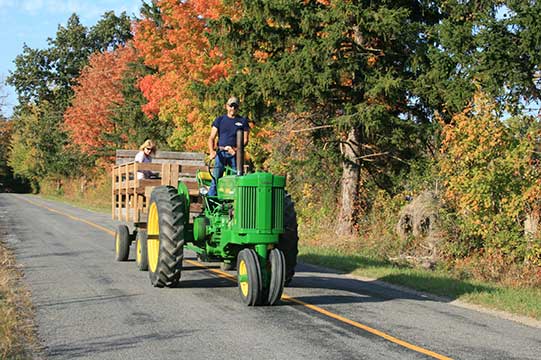
Trains
Amtrak goes from Chicago to New Buffalo (call for schedule). If you let us know in advance we may be able to arrange a ride (about 6 miles). South Shore Trains go from Chicago to Michigan City, IN. Visitors that plan to bike to the orchard from the train station should note that bikes are only allowed on the Amtrak. Please check the policies before making arrangements. The South Shore Line to Michigan City has a no bike policy.
WAIVER REQUIRED
Participants in the Harvest Fest or Harvest Day are asked to sign a waiver.
Click here to download the form and bring along when you come.
If you cannot or forget to bring it, no worries, we will have a copy at the entry table for you to sign.
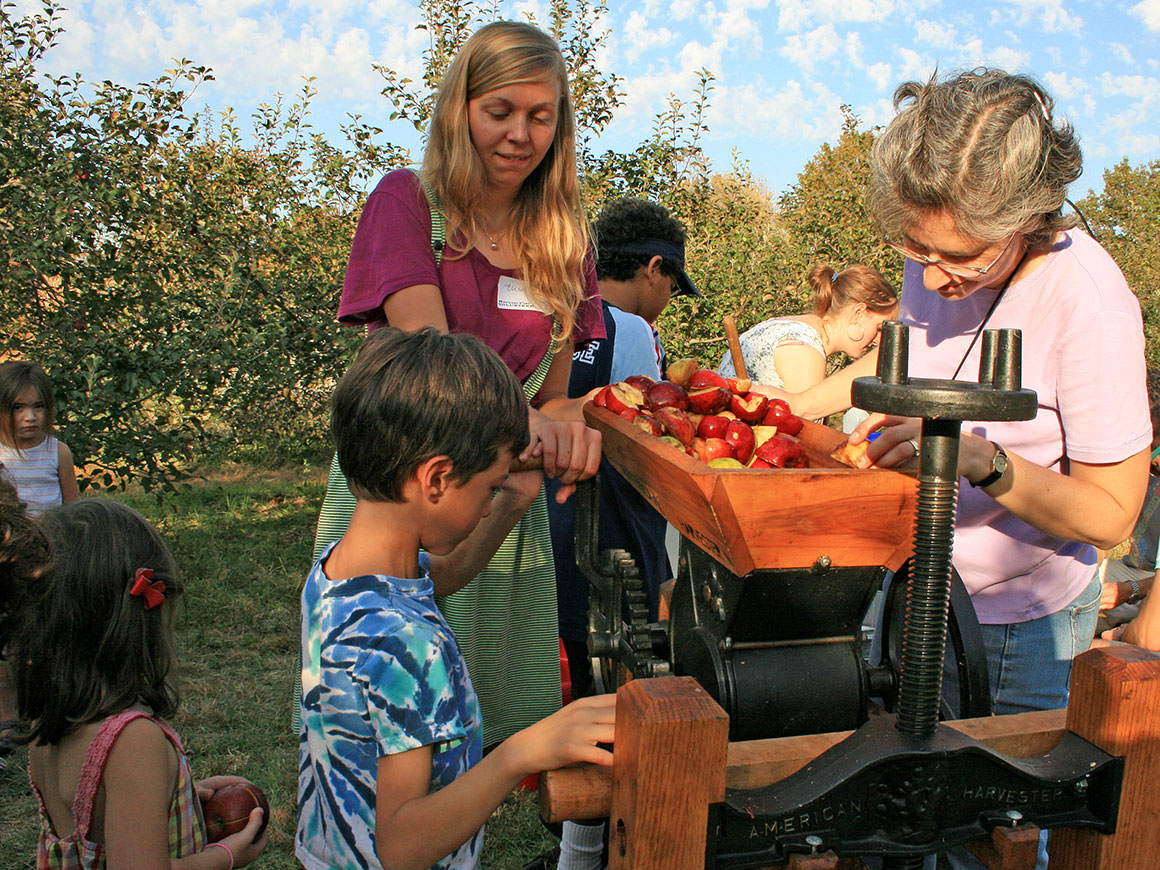
Volunteer
The Harvest Fest could not be successful without the help of numerous volunteers who set-up and staff the activity stations and entertainment. Volunteers are scheduled for two-hour shifts throughout the day. Day-of event volunteers are strongly encouraged to arrive one hour before their scheduled shift to receive a brief orientation. Free admission (including pizza, pie, and ice-cream) is granted to all volunteers.
- Morning set-up crew: Set up tables and activity stations
- Deserts: Serve pie
- Ice-cream: Hand-crank or bike crank home-made ice-cream
- Sales: Home-made apple butter and jams
- Cider Press: Wash and press your own apples for fresh cider
- Wood-fired pizza oven: Prepare, cook, and serve hot pizzas
- Children’s activities: Assist kids’ with painting or activities
If arrangements are made in advance, volunteers are welcome to camp at the orchard after the event on Saturday night. If you are interested in learning more about volunteering, contact Richard.
Can I volunteer some other time?
It takes lots of work to produce fruit organically. Profits from the orchard go to charities. Assistance on the orchard is welcomed during the spring, summer, and fall. Starting in May, projects include thinning of small apples, collecting and disposing of “apple drops” to prevent the spread of pests, and pruning trees. In September, projects include processing apples for apple butter and jam and preparing and freezing apples for pies for Harvest Fest.
To schedule a workday at the Wild Raspberry Orchard, contact Richard Rutschman.
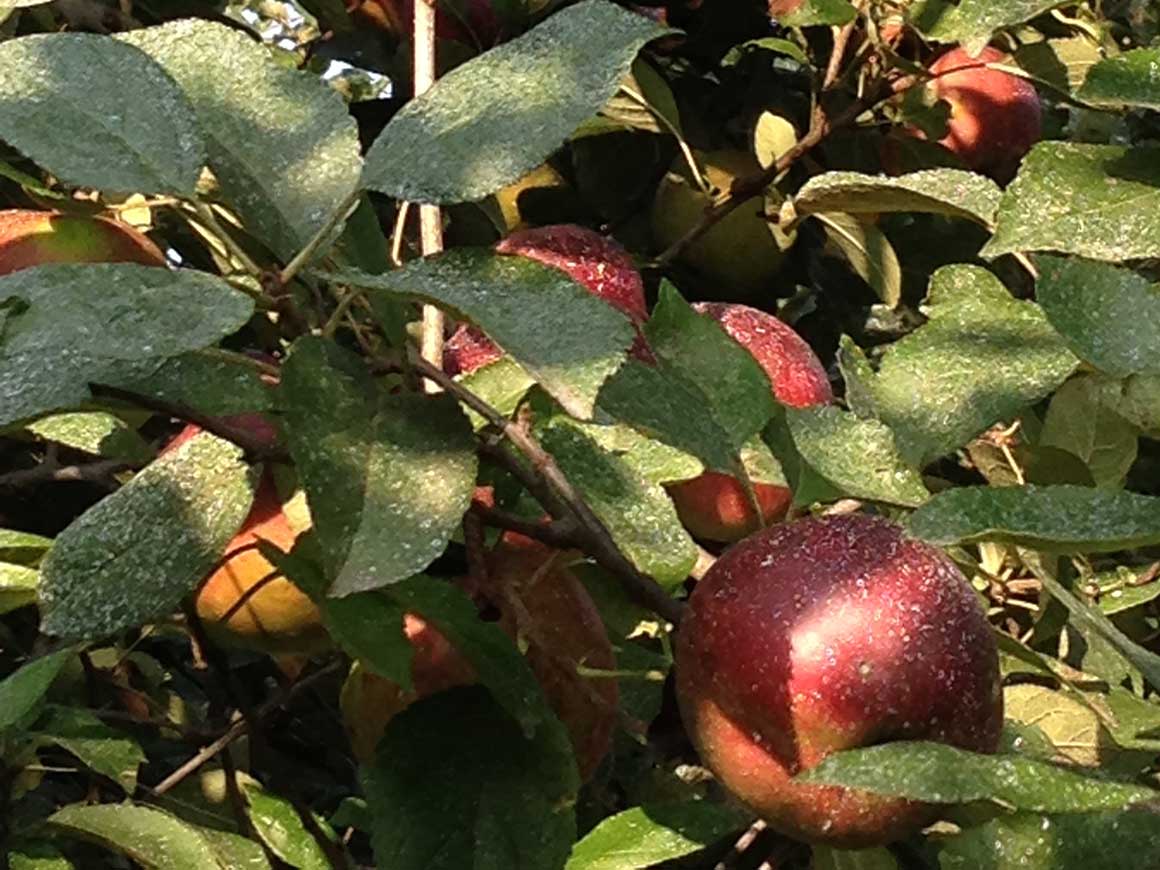
About the Orchard
The Wild Raspberry Orchard exists thanks in part to Sylvia Mary Schulz (1903-1996) who grew up in Chicago. Her favorite experience as a child was leaving the city and experiencing farm life. Some of the land for the orchard was bought with funds she left from a life of frugality and hard work and thus the Wild Raspberry Orchard is dedicated to her memory. The orchard is intended to provide people of all ages a chance to get into nature and experience a little about the challenges of organic fruit production in Michigan (very few orchards) commercially done).
The orchard was started with about 20 trees planted in the fall of 1998 and spring of 1999. There are about 80 fruit trees and 30 fruiting vines and bushes. The summer and early fall varieties of apples are harvested for use in making apple butter, pies, and for pies for Harvest Fest, which takes place in October each year. The care of this orchard is mostly completed by volunteers. We have been forced to keep beehives to have pollinators for the trees. It’s our hope that this orchard will provide an opportunity for people to gain or renew their appreciation for the environment and learn about environmentally friendly fruit production.
What is growing at the Wild Raspberry Orchard?
There are primarily three disease resistant apples (Gold Rush, Enterprise, Jonafree and 40 other apple varieties (many antique). Some trees have grafts with more than one variety. There are several varieties of pears and other more exotic fruit trees like quince, pawpaw, and jujube. The vines or berry bushes include grapes, blueberries, and gooseberries. This orchard was named after the many wild berry canes that were growing on the land before the trees were planted. Apple varieties were selected for their disease-resistant traits (to help make up for the limitations of organic controls) and others due to their distinguished characteristics often only found in antique varieties.
What is involved with organic apple production?
The fruit at this orchard is grown organically—without the use of harmful chemical pesticides, herbicides or fertilizers. Instead, only botanical, mineral, and biological controls are used, including pheromone disrupters, repellents, wood chips, compost, and natural fertilizers. Use of natural growing techniques and pest controls are kinder on the environment as well as for the health of volunteers spraying, while preventing chemical from entering the food chain.
It is important to understand that sustainable agriculture ecosystem do not eliminate pests, but rather, help limit and control their damage to trees and fruit. As a result, the harvested fruit often needs to be scrubbed to remove some surface fungus (black soot, fly speck, etc.) and often have blemishes left by some of our natural “friends” who also enjoy the fruit. It is not uncommon to find traces of pests and cutting into these apples is advised. The flavor of these apples is one of the attractions and is one reason participants return each year. You are creating a smaller footprint on the earth by eating locally grown fruit grown with little energy.
Variety of Tree Varieties Available
Every variety of apple tree comes from a graft, since each tree is unique (just like we are). We graft our own trees onto dwarf or semi-dwarf root stock, ones that do not have royalties in place. Proceeds of the sale of trees support the operating costs. We also make available free trees to local (Chicago area) not-for-profit organizations and schools. The varieties that we often have because we think they are good apples or will be glad to take orders to graft are:
Ashmead’s Kernel
Bramley’s Seedling (an antique favorite cooking apple in England)
Cox’s Orange Pippin (an antique apple)
Calville Blanc d’Hiver (a French apple from the 1700’s)
Egremont Russet (an antique variety for cider)
Esopus Spitzenberg
Golden Russet
Haralson
Holiday
St. Edmund’s Russet (an antique variety for cider)
Newtosh
Virginia Gold
Winter Banana (believed to be a Johnny Appleseed Chapman apple)
Call for prices and arrangements for pick up at the orchard or in Chicago.
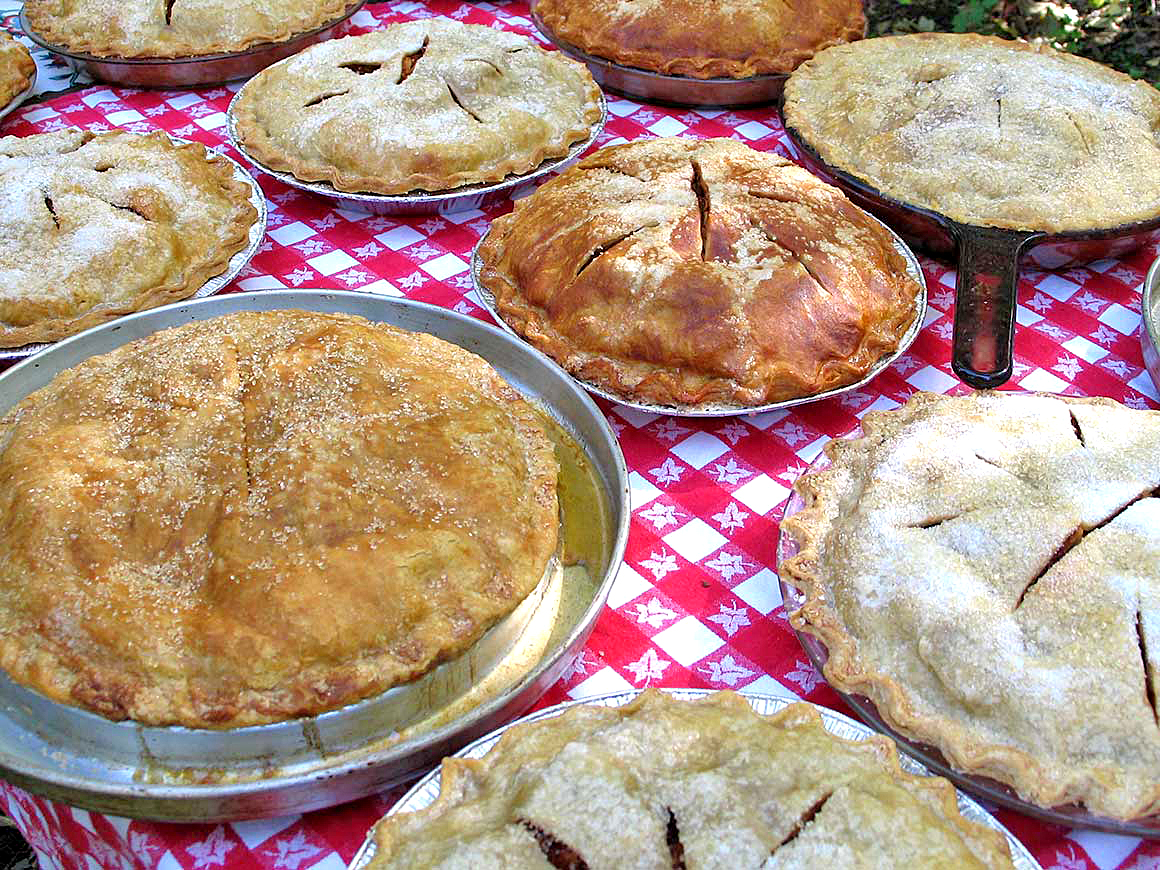
Nonprofits Supported
2021
$1,720.00 for Tierra Nueva Growers Cooperative
(San Luis and Minas de Oro, Comayagua, Honduras via Larry Sell)
To start and graft 900 avocado trees and 500 orange trees to diversify crops and shade family coffee farm cooperatives to help adjust to climate change.
$998.00 for Englewood Orchard & Garden Project
(Chicago, IL via Chicago Opportunity for Peace in Action to Gregory Bratton).
2019
La 72 Homeless Refugee Shelter ($3,667)
2017
Project Cure ($880)
Ujimaa Medics ($880)
2015
($2,100 divided equally)
Prairie Travelers
A rails to trails organization creating bike paths in Wichita, Ks.
Project Cure
An organization that sends donated used medical equipment and supplies to clinics in the developing world.
Semillas
An organization that supports women’s organizations in Mexico to contribute to just and equitable social change
2014
(No festival due to poor crop caused by lack of enough pollinators bees)
2013
($1,620, divided equally)
Pedro Albizu Campos H.S. ($540)
To support coursework on urban gardening in Chicago’s Humboldt Park community.
Chicago Opportunity for Peace in Action ($540)
To support a building renovation and training project in Chicago’s Englewood community.
Community Justice for Youth Institute ($540)
To support restorative justice work with youth in Chicago communities and schools.
2012
(No festival due to poor crop caused by a late Spring freeze)
2011
($5,360 Total, divided equally)
Imagine Haitian
For sustainable development support (a press for the Jatropha seeds for bio-diesel, wells for the mango grove seedlings & environmental education.
El Abrojo, Uruguay
To support educational, developmental and recreational programs for street kids and poor children and adolescents at a drop-in center, a mobile bus & for a summer camp. Advocacy work.
2010
($3,450 Total, divided equally)
Shine Humanity
($1,150 for Pakistan flood victims)
is dedicated to providing quick, efficient and compassionate medical and humanitarian relief in disaster recovery. The flood catastrophe that left one fifth of the country under water and 14 million lives displaced. Funds supported the creation of Family Care Packages consisting of staple foods, water, and basic hygiene products (put together in Pakistan).
Shanti Foundation For Peace
($1,300 in Chicago & Evanston)—
Fosters peace, acceptance, and understanding in the everyday interactions of diverse people, through visual, literary, and performing arts programs in schools and communities, helping create experiences that develop imaginative, flexible, inclusive, collaborative thinking.
Ministerio Internacional Batista Vida
($1,000 in Salvador, Bahia)—
Social and support service assistance for economically disadvantaged children and mothers, including providing clothing, educational opportunities, after school programs, nutritional services, recycling program for income generation, and prisoner visitation.
2009
($3,180 Total, divided equally)
Just Coffee Santa Anita Finca (Quezaltango, Guatemala)
Produces organic, fair trade certified coffee and sells it in the Fair Trade market. Thirty-two families in the community are responsible for cultivating the land.
Ecuadorian Volunteers
ALDEC program (Quito, Ecuador) serves around 200 children daily who work on the streets selling candy, flowers, or shining shoes. To qualify for assistance, the children must be enrolled in some form of learning program, either in the daytime, evening, or weekend.
Imagine Englewood If (Chicago)
works to strengthen and empower the greater Englewood community through teaching local youth healthy living, environmental awareness and positive communication skills. IEi motivates youth and their families to seek a positive quality of life and encourages them to pursue positive change.
2008
($2,685)
Growing Home (Chicago)
Is a not-for-profit that provides job training for homeless and low-income individuals through a social enterprise business based on organic agriculture. Funds helped support the construction of Wood Street Farm.
Play for Peace (India)
Works to bring together children, youth, and organizations from communities in conflict, using cooperative play to create laughter, compassion, and peace. Funds helped support cooperative games and experiential learning programs to bring together Hindi, Muslim, and Christian youth.
2007
($1,700)
Erie Neighborhood House (Chicago)
Is a community service agency that promotes a just and inclusive society by strengthening low-income, primarily Latino families through skill-building, access to critical resources, advocacy and collaborative action. Funds helped support a legal service fund.
Las Piedras Orphanage (Montevideo, Uruguay)
To support children and youth without parents to care for them.
La Causana (Quito, Ecuador)
For human rights work that builds awareness and influences social-political change toward LGBT causes.
2006
($1,100)
Christian Peacemaker Teams
Places violence-reduction teams in crisis situations and militarized areas around the world at the invitation of local peace and human rights workers. Funds supported Iraq and Colombia teams.
Justapaz (Bogota, Columbia)
Works for peace and justice work.
WE-ACTrx (Rwanda)
Works to increase women and children’s access to HIV testing, care, treatment, and support and assists survivors of genocidal rape and sexual violence.
2005
($820)
Centro San Bonifacio (Chicago)
Promotes personal and collective self-development within the immigrant Hispanic community through programs based on needs related to health, education, solidarity and human rights. Funds supported the development of lay health worker “promotores” training.
Mennonite Disaster Service
to help Katrina hurricane victims.
Mennonite Central Committee
For housing reconstruction in Afghanistan.